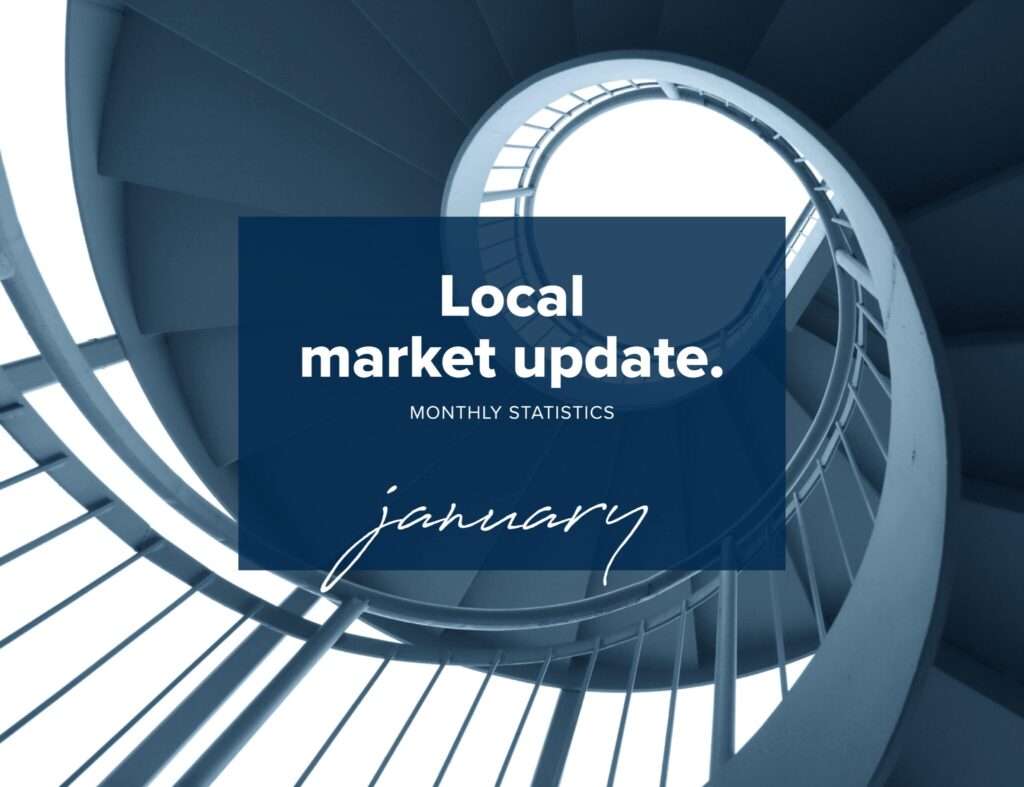
The close of 2022 brought the housing market extremes of the last year into sharp focus. With decreased sales, generally increasing inventory and lower prices, the December market finally seemed to hit the winter slowdown that has characterized typical market cycles of years past. This stands in contrast to the early months of 2022, which saw sky-high prices and scarce inventory, before the threat of inflation and rising mortgage rates caused the shift in the latter half of the year.
Windermere Chief Economist Matthew Gardner commented on this phenomenon. “The local housing market in 2022 ended with a whimper rather than a bang. Overall, the housing market is going to continue falling off the artificial ‘sugar high’ that was a function of the artificially low mortgage rates during the pandemic,” he said.
This is not necessarily a bad thing, as stability in the market could translate to more predictable price appreciation for sellers, and better circumstances for buyers to enter the market. In most cases, it’s low- and middle-priced homes that are missing from the market, so many first-time buyers still have plenty of pent-up demand for inventory that meets their needs and financial situations.
Despite a 43.3% drop in closed sales compared to December 2021, last month saw the median price for single-family homes in King County rise to $825,000. That’s up from the median of $810,000 this time last year. This could speak to the lingering effects of inflation on the market, or be a factor of the lack of entry and mid-level homes currently available to buyers.
The Seattle market experienced the same pattern, with a year-over-year price increase of almost 5%, from $839,000 in December 2021 to $879,975 last month. Closed sales were down in the city as well, dropping 43.5% from last year to just 394 units, leaving the market with just under six weeks of inventory. The condo market mimicked this trend, with the median price rising to $512,500 last month, up from $490,000 December 2021. Additionally, Seattle condos offered the highest amount of inventory, with 2.5 months of stock.
Things were a little different on the Eastside, which had experienced perhaps the highest price boom during the “sugar high” of the pandemic. There, single-family home prices decreased around 15% year-over-year, landing at a median of $1,299,000 last month, compared to $1,529,500 in December 2021. This is likely due to higher mortgage rates dampening the buying power of potential homebuyers in the area. Entry-level buyers may be forced to look in more affordable markets for the time being, and December’s 39.5% decrease in closed sales compared to December 2021 reflects this. Interestingly, Eastside condos experienced a sold price increase, to a median of $565,000, up from $550,000 last year. This is likely because condos are a much more affordable entry point to the Eastside market, and may be experiencing higher demand as buyers tailor their expectations to the current market conditions.
After the ups and downs of the last year, Snohomish County ended exactly where it began, with a median single-family home price of $700,000 — the same as in December 2021. Closed sales in the area were down 38.3%, leaving the market with about six weeks of inventory. Throughout the pandemic, Snohomish County has been a relatively stable market compared to the fluctuations of Seattle and the Eastside, making it a desirable area for first-time buyers and those looking to maximize their buying power.
Looking ahead, Matthew Gardner expects 2023 will see continued price declines. However, “With mortgage rates expected to slowly fall from current levels, sale prices should start increasing again in the second half of the year,” he said.
Gardner continued, “Ultimately, once prices pull back to where they would have been if the pandemic had never occurred, they will start to stabilize and then return to a more normalized pace of appreciation.”
Sellers and buyers have certainly felt the impacts of shifting economic conditions on the housing market. A slower market pace and modest price decreases may be necessary to help reset expectations on both sides and set up sustained future success.